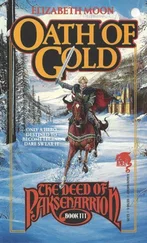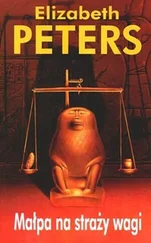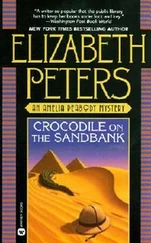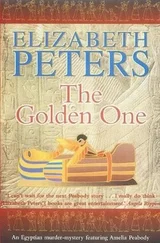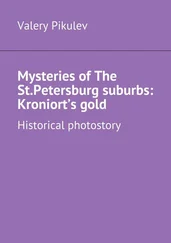Clara raised her head. A curl of scarlet ribbon dangled from her mouth like an outré mustache, and it seemed to me that there was a distinctly critical look in her eyes.
“Right,” I muttered. “Right. No time…” I snatched up my jacket and backpack and ran out.
How had she gotten into my room? The window was closed. John had locked her in the shop….
As I trotted through the lobby, I heard Schmidt’s well-known voice in the distance. He’d keep an eye on Tony. I wished I could have had him arrested, too. But the danger was not in the hotel, I was sure of that; it was heading up the mountain, to the same place I was going.
The twinkling Christmas lights and warmly lit windows of the houses I passed were poignant reminders of a misspent life. If I had settled down to domesticity, I’d be in just such a pleasant cottage, baking cookies and patting the dog and kissing the kiddies, instead of skidding along icy roads under a sky dark as death, on my way to a rendezvous with a murderer.
The traffic was surprisingly light. Not so surprising, actually; it was Christmas Eve, sensible people were safe at home. I swore—at myself—and swerved to avoid some idiot who was standing in the middle of the road waving his arms. As I turned sharply into the narrow track leading up the mountain, it occurred to me that the idiot had been wearing a uniform of some kind.
The wheels hit a stretch of ice and the car went into a skid. Despite the cold, I was sweating when I pulled out of it, and I forced myself to let up on the gas. There was no hurry. He couldn’t be more than fifteen minutes ahead of me, half an hour at the most. And what he had to do would take a long time, even if he had thought to bring the proper equipment. Needless to say, I had not. It wasn’t the gold I was after, it was the man. Not that I had the slightest idea of what I was going to do if I found him.
With a sharp stab of relief I remembered that Schmidt’s gun was in my backpack. Good old Schmidt.
The road was bad. I had to concentrate on keeping a steady pace, fast enough so the car wouldn’t stall on the slope, slow enough so I could handle the frequent skids. Only my own headlights broke the darkness ahead of me. I must have gone half the distance before a flash of light in my rearview mirror betrayed the presence of a following vehicle.
Could I be ahead of him? Certainly I could. My foot had started for the brake; the car wove wildly when I returned it to the gas, a little too emphatically. It made no sense to stop; if I did, I’d never get started again, and there was no place to turn until I reached the cemetery. Perhaps it was the law behind me—the cop I had narrowly missed. Such dedication over a simple traffic violation? I sincerely hoped so, but I wasn’t counting on it.
I had to keep both hands tight on the wheel, but how my fingers itched for that lovely gun. Time enough for that later, I told myself, and set my mind to considering alternative strategies. Or was it tactics? I can never remember which is which. Any attempt at innocent coincidence—“Fancy meeting you here”—was O-U-T, out. There was only one reason why anyone, including me, would visit the abandoned churchyard on such a night—and it wasn’t the desire for a quiet spin in the country. No, it would be a direct, honest confrontation for once, no pretense, no kidding around. I would have to get him—or her—before whoever it was got me.
I think if I had known who it was, I wouldn’t have been so nervous. Dieter or Jan or Elise? I wasn’t afraid of any of them, or of any hypothetical third party. I was afraid of the unknown. And of the possibility that it might be someone I did know but had not wanted to suspect.
The following headlights behind me alternately shone out and vanished, as I swung around the tight upward curves. The car wasn’t making any attempt to catch up; it stayed at the same discreet distance. So, I thought, not the police. No flashing lights, no siren.
Intent on the car behind me, I almost passed the cemetery. My turn was too sharp and too fast; the Audi slid sideways into a high snowbank, and the engine died.
I had closed my eyes involuntarily. When I opened them, I saw nothing but snow. Mercifully, my door was still clear. I fought my way out, pausing only long enough to snatch my backpack and turn out the lights.
There was no moon to shine on the breast of the new-fallen snow, but the pale surface was lighter than the sky. The desolate church loomed like a crouching dinosaur, its tower the stiff, raised head. I floundered through the drifts, leaving a trail a blind man could follow. Maybe abandoning the car had not been such a great idea after all. But the prospect of being trapped inside, with the opposite door blocked, was even more unpleasant.
The night blossomed with light. I fell face down, burrowing into the snow.
After a while I realized the light was gone. The car had passed by. It hadn’t turned into the churchyard; I would have heard the engine cut off.
I got slowly to my feet and brushed the snow from my face, and listened. The night was not silent. The wind blew shrill from the east, wailing under the eaves of the church and rattling the branches of the trees. It made a lonely howling in the night, like the poor demons of paganism, cast into outer darkness and bewailing their banishment from the throne of light.
As I stood there slowly congealing, I faced the unpleasant truth. I had panicked. I do that sometimes; what the hell, I’m not Superwoman. While I was thinking patronizingly about poor old Tony’s inability to react quickly in a crisis, I was reacting too quickly, mounting my horse and riding off in all directions. I should have tried to find help. Though whether I would have succeeded, on Christmas Eve, with a new-laid murder preoccupying the small police force, was open to question.
Either I was all alone in the cemetery, or the other denizens of the region were singularly silent types…. Obviously nobody had arrived on the scene before me. There was no sign of activity near the lonely grave. It would require a blowtorch or a long-burning fire to soften the frozen earth before anyone could begin digging. The driver of the car that had been following me must have been an innocent local, homeward bound to his cottage on the other side of the mountain.
Obviously I couldn’t spend the night squatting on Frau Hoffman’s grave, waiting for the unknown to turn up. I could freeze to death before that happened, if it ever did. I decided I had better get back to the car. In the enthusiasm of new-car ownership I had stocked the trunk with a variety of suggested emergency equipment. Some of it might even be there. The blanket was kaput; I had used it to cover the seat one day when I took Caesar to the vet, and he had eaten most of it. But if memory served, I still had a small folding shovel and a few other odds and ends. If I couldn’t dig the car out and get it back on the road, I might at least survive until morning.
It was at that point in my cool, deliberate reasoning that I heard something that was not the wind moaning in the branches. The wind wouldn’t call my name.
The voice came behind me—between me and the car. Did I panic? Of course I did. I started forward, my progress agonizingly slowed by the depth of the snow. Get behind something—that was my only thought. A snowbank, a wall—how about a tombstone? Plenty of them around.
“Vicky!” Unmistakably my name, though the wind snatched the syllables and played with them. High-pitched and distorted by emotion, it could have been the voice of a man or a woman.
I reached an area where the snow was slightly less deep—only about to my knees. The black square framed in whiteness was Hoffman’s tombstone. The snow lay deep and untouched over the graves. One of my wreaths had toppled forward, only a black half-circle showed, partially veiled by the drifting snow.
Читать дальше

